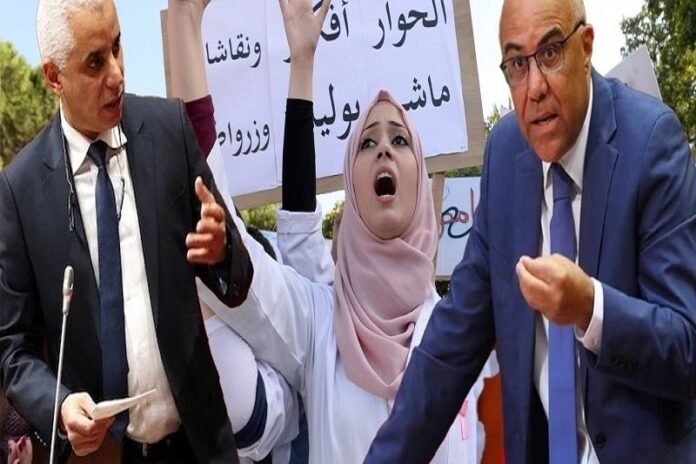189 Moroccan doctors have chosen France for advanced medical training, as recently revealed by the French Embassy in Morocco, as part of a training program allowing them to obtain a diploma in advanced medical training (DFMS) and specialized medical training (DFMA).
Nos sincères félicitations aux 189 médecins marocains sélectionnés pour le Diplôme de Formation Médicale Spécialisée ou Approfondie en 🇨🇵 (DFMS, DFMA)!
Un des meilleurs résultats du continent africain, qui confirme notre partenariat d'exception🇲🇦🤝🇨🇵 @francediplo@sup_recherche pic.twitter.com/IzrzFzbewX— La France au Maroc 🇫🇷🇪🇺 (@AmbaFranceMaroc) September 6, 2024
While the embassy congratulated the Moroccan doctors on their outstanding performance, this news raises important questions about the brain drain of Moroccan health professionals and whether these training opportunities represent a professional chance or a sign of losing national talents.
Are talents lost due to the government’s stubbornness?
The debate about the migration of doctors abroad is intensifying, especially in light of the temptations from countries like France, which is suffering from a severe shortage of healthcare professionals. These temptations, whether in terms of income or advanced training, make many doctors consider settling abroad.
Are we witnessing a brain drain of medical professionals due to the lack of suitable conditions for practicing the profession in Morocco? Or is this simply part of a normal exchange of expertise?
What about the responsibility of the government and the Minister of Higher Education?
Amid this context, the crisis between medical students and the government continues. With students boycotting exams and increasing protests against the Minister of Higher Education, Abdellatif Miraoui, who is accused of stubbornness in resolving the crisis, questions arise about how much these policies contribute to the brain drain and the emigration of skilled professionals abroad.
Is the government indeed contributing to the loss of national talents by ignoring students’ demands and handling their issues with superiority?
The impact of policies on the migration of doctors
According to experts, the problems related to migration are not new, but the government’s policies might be accelerating the trend. Taib Hamdi, a researcher in health policies, pointed out that Moroccan doctors’ migration to foreign countries like France is linked to the search for a better working environment and quality training.
Is the government’s failure to improve working and training conditions driving medical professionals abroad?
What does Morocco need to retain its talents?
In light of this situation, the question remains: What should the government do to retain its medical talents? Experts suggest that solutions lie in improving working conditions in Morocco by raising salaries, developing a continuous training system, and ensuring a suitable professional environment for doctors and nurses. This could reduce doctors’ desire to emigrate and enhance their stability within the country.
What message should we send to the officials?
It is clear that the solutions require a radical change in how talents are handled. Is the government fully aware of the seriousness of the situation? Is it prepared to implement the necessary reforms to retain national talents and prevent the worsening of the brain drain? Or will the current policies contribute to the deterioration of the national healthcare system?
Raising public awareness and mobilizing support
In this context, the role of citizens and the media is crucial in putting pressure on the government to change its policies towards scientific and medical talents. It is essential for citizens to understand that the brain drain directly affects the quality of the healthcare services they receive. Are we on the verge of losing more doctors, not due to lack of competence, but as a result of government neglect?


